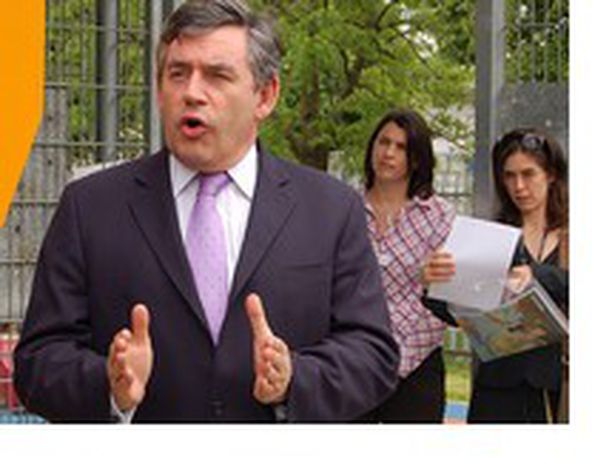
Gordon Brown’s referendum conundrum
Published on
Translation by:
Sarah GrayUnder pressure from all sides, and from within his own party, the British PM continues to resist a referendum on the EU constitution
'This treaty matters Prime Minister, so be bold and let the British people have the final say!' That was the call from Baroness Margaret Thatcher. The Iron Lady and former British prime minister is amongst the latest political figures to join the pro-referendum camp.
But the issue has really been set alight by the I want a referendum all-party campaign, launched at the beginning of September 2007. Its leader is Derek Scott, ex-economic adviser to the last British PM, Tony Blair. ‘Over the coming months we will increase the pressure on the government until they keep their manifesto promise of a referendum on the treaty.’
In addition to this call for a democratic decision, a campaign run by MPs amid a flurry of adverts and press conferences is pushing for a refusal of the treaty, since they believe it would give more power to Brussels and weaken British influence in Europe.
Concern among trade unions
At the annual four-day trades union congress (TUC) this September, delegates representing a total of six million members voted overwhelmingly in favour of a motion calling on the government to hold a referendum. Unions have their own reasons for refusing the treaty: ‘We are concerned about the impact it could have on EU social rights’, says Derek Simpson, joint general secretary of the UK’s largest union and the largest union in manufacturing, Unite.
In the firing line is the ‘UK specific protocol’ inserted in the treaty, meaning that the government is effectively excluded from having to implement directives of the EU Charter for Fundamental Rights, despite their having signed the document at the Nice Summit in 2000. ‘British workers must not be treated as second-class citizens!’ cry the unions - a clear warning to Gordon Brown. Although an election is no longer imminent, there will be no denying the importance of this issue when Britain next goes to the polls.
Anti-European opposition
The Tories have already made their position clear. ‘The next Conservative Government will amend the 1972 European Communities Act, so that if any future government agrees any treaty that transfers further competences from Britain to the EU a national referendum before it could be ratified would be required by law,’ announced Shadow foreign secretary William Hague at the Tory Party Conference this month.
But perhaps Conservative support for a referendum stems as much from their political desire to damage Gordon Brown as it does from their hostility towards any supranational union which lessens Britain’s own power.
Despite the opposition – including the unions, Conservative, Liberal Democrat and even Labour MPs, national newspapers and the majority of the general public (two-thirds think there should be a referendum on the EU treaty, according to a YouGov poll) – the prime minister remains stubborn. He still prefers the parliamentary route to ratifying the treaty. His argument, among others, being that the treaty’s text has now been considerably altered.
Since the UK is one of the EU’s most eurosceptic member states, the likely referendum result – a resounding ‘no’ – would put Brown in a very difficult political situation. Worse still, it would be yet another blow to the already battered and bruised process of European integration.
Translated from Traité VS Gordon Brown : référendum ou pas ?



